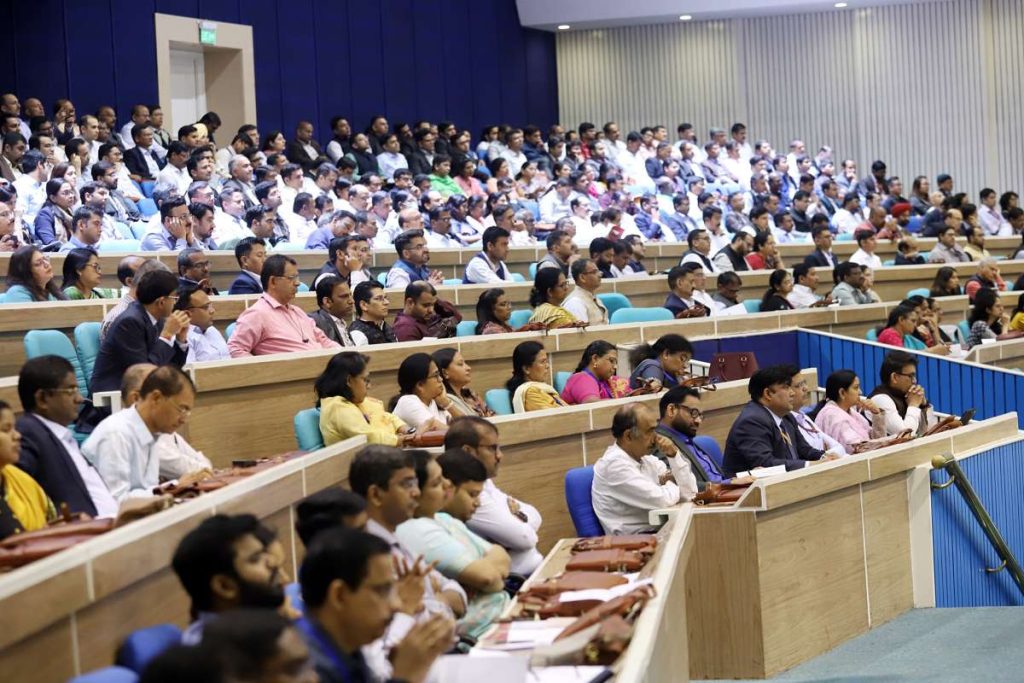Pushed on rising mobile, broadband, and car insurance costs, Sunak acknowledged there were still “challenges”, but argued the UK was “in a far better place”…reports Asian Lite News
This year will “prove to be the year that the economy bounces back”, Rishi Sunak told after figures showed inflation fell to its lowest level in almost two and half years. “We have turned a corner after the shocks of the past few years,” he said. Figures earlier showed inflation dropped to 3.4% last month as price rises for food and eating out slowed.
But despite price rises slowing overall, housing and fuel prices continued to rise rapidly. The prime minister said things had started to look up.
“I do believe that at the start of this year we have turned a corner after the shocks of the past few years and we are in a new economic moment,” he added.
Asked if he saw green shoots of recovery for the country, Sunak said businesses and people were “seeing that things have turned.” During the prime minister’s premiership to date, households have continued to feel the pain of rising prices and higher borrowing costs, especially for mortgages, as the Bank hiked interest rates to try to slow down rapid price rises.
Inflation remains higher than the Bank of England’s 2% target and at the end of last year the UK slipped into economic recession. One of Sunak’s main pledges was to grow the economy.
Sunak acknowledged things still felt tough for people, but insisted fortunes for the UK economy were changing after being damaged by the Covid pandemic and energy and food price surges from the war in Ukraine in recent years.
Pushed on rising mobile, broadband, and car insurance costs, Sunak acknowledged there were still “challenges”, but argued the UK was “in a far better place than we were when I became prime minister because of our plan”.
He acknowledged “things still feel tough for lots of people”, but added “my job is to make sure that we’re helping, and that’s what our tax cuts do”.
Separately, the prime minister said he was “not interested in Westminster gossip” over plots to oust him. “What’s important is the future of our country and people’s financial security and the peace of mind that they rightly deserve and my job and what I am working every day to deliver is that peace of mind that there is a brighter future ahead,” he added.
The health of the UK economy is at the top of the political agenda, with the general election set to be called in the coming months and both major parties pledging to boost growth.
Labour’s shadow chancellor Rachel Reeves has vowed Labour will seek to bring about a “new chapter in Britain’s economic history”, telling the BBC on Tuesday that economic growth was “essential to do everything else that a Labour government would want to do”.
Earlier this month, Chancellor Jeremy Hunt set out the government’s tax and spending plans in his Budget, including a cut to National Insurance and an expansion of child benefit.
UK rent prices up 9%
The average cost of rent in the UK rose by 9% in the 12 months to February this year – the highest annual increase since records began in 2015.
There were price rises in all parts of the country, according to the Office for National Statistics (ONS). In England, London renters saw costs go up the most at 10.6%, taking average monthly rent in the capital to £2,035.
A government spokesperson said its Renters (Reform) Bill would give tenants and landlords a “fairer deal”. Average monthly rent increases across the UK ranged from 8.8% in England through to 10.9% in Scotland and 9% in Wales.
This meant tenants in each country paid an extra £104, £93 or £60 a month respectively.
Northern Ireland’s data lags behind the rest of the UK, with figures currently available up to the end of last year. The ONS reported a 9.3% increase in the country for the year to December 2023.
London – which saw the biggest increase overall – had the UK’s highest rent even before the latest inflation figures were published on Wednesday.
In England and outside of the capital, Bristol was the most expensive place to rent privately – costing £1,734 a month.
Meanwhile, average UK house prices fell by 0.6% in the year to January, though it marked a slower drop than the 2.2% annual fall recorded a month earlier.
There were price rises in all parts of the country, according to the Office for National Statistics (ONS). In England, London renters saw costs go up the most at 10.6%, taking average monthly rent in the capital to £2,035.
A government spokesperson said its Renters (Reform) Bill would give tenants and landlords a “fairer deal”. Average monthly rent increases across the UK ranged from 8.8% in England through to 10.9% in Scotland and 9% in Wales.













